The Melody MI880 integrated tube amplifier
| The Melody MI880 integrated tube amplifier |
| An Open Mind to the Unexpected |
|
|
|
November 2007 |
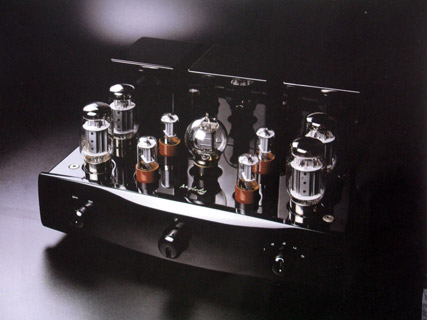
$1,000? $2,000? $20,000? How much is too much for a really good amp? Try $50,000 and $75,000. That is how much my Vitus Audio M-101 mono amps and my Behold amplification system costs respectively. To say that I am one lucky dude would be a profound understatement. I feel I have reached the end of the road or at the very least, an extremely comfortable destination which I am in no hurry to leave.
But my position at Stereo Times is no invitation to get all fat and lazy. There is a vast world of ever-evolving audio electronics out there and it remains my job to sniff them out and let you readers in on what I find.
Which brings me to the subject of this review, the Melody Audio MI880 integrated amplifier. During a late night internet scour, I came across some reviews and web site information on this Chinese made, Australian centered company offering a line of Tube amps, preamps and integrated amplifiers. Despite some very kind words written about the Melody line, this company had a very steep uphill climb to lock in my interests. First, I’m not a tube guy. I just need too much grunt for my speakers and room. And second, these products are priced way below the going rate for the premium audiophile’s credibility requirements.
Despite my long held prejudices, needs, preferences or however you want to describe that mind set that keeps one on either side of the technology ideology that shapes our systems, affiliations, as well as our audiophile identities, I could not take my eyes off this amp! Even with the photos falling well short of just how gorgeous these amps are, I was compelled to contact Melody and arrange for a review sample.
The amp arrived double boxed, neatly packed and in perfect condition. Once removed from the carton, the MI880 was a bit bigger than I thought it would be and WAY better looking than an amp of this price point should be. Assuming a glistening liquid smooth curvaceous black lacquer chassis is up your alley, the fit and finish will leave nothing wanting. The back of the amp has one set of 8ohm binding posts and one set of 16 ohm binding posts which by the way, are wonderfully robust and a cinch to tighten by hand. There are balanced (XLR) as well as single-ended inputs.
A quick synopsis of Melody the company reads as such from the Melody web site:
“The parent company, MELODY VALVE HIFI PTY Ltd. is based in Melbourne, Australia. It was founded by a seasoned engineer who is also a keen audiophile…. the aim is to combine traditional valve technology with the latest research, parts and knowledge. We use a selection of rare and special parts, such as the Aerovox oil filled capacitor, widely admired since the Second World War. The result is a special combination of history and high technology, bringing a truly sublime quality of sound. We use this technology, and ruthless selection of parts, in, for example, our range of preamplifiers, regardless of price.
That work has been recognized by a variety of international awards, including the description of one of our preamplifiers as one of the best three such units in the world. High praise but honestly earned. We also use cable of exceptional quality, hard-wired for the best results and long-term reliability…. something the best traditional makers of valve amps always knew. In the same way we go to great lengths to specify and build our own world beating transformers, another of the secrets of making a truly great valve amplifier. Over the years our founder, keener than ever, has surrounded himself with fellow engineers who love music.
Together they work hard to constantly improve our products, while never forgetting the lessons of the past. Our guiding philosophy, after Einstein, is ‘make it as simple as possible. But no simpler.”
Those last couple of sentences regarding simplicity are words to live by. The MI880 requires no complicated operating programs which befall so much of contemporary high end products. I have spent the better part of the last three years exploring the outer edges of the digital amplification/room correction. Simplicity has very little to do with these components.
So being able to plug and play was a welcome respite. The front panel has an input selector, volume knob, and on/off knob. The knobs are nicely machined and quite robust. When turning up the volume you are welcomed with solid clicks as you ascend the volume level. Balanced connections are welcome along with the standard RCA. There is no remote, which makes me a bit cranky but I can get over it.
With 50 watts of power, the MelodyMI880 should be able to at the very least, produce enough volume to get a handle on the overall quality of the sound despite facing a stacked deck in the form of my very demanding Dynaudio Evidence Master speakers which take space in my stadium sized room. A pair of Sonus Faber Stradavari arrived late in the review process allowing the Melody I880 to power a vastly different type of speaker from the Dynaudios. While lacking the level precision and unflappability of the Dynaudio, the Stradavari warmed the sound and played to the strength of the Melody’s mid-band.
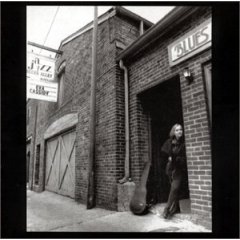 Perhaps the Melody benefited from the attitude of managed expectations on my part because once the amp came into voice (a week was plenty of time) I was positively giddy with excitement. The first thing that struck me was the lovely timber and overall openness to the sound. There was an ease that managed to avoid blandness as well as enough transient bite that stayed on the right side of aggressive. I guess the short-winded way to sum this up is the Melody has presence. Musical timbers are vibrant, projected with no uncertainty against a velvety black background. Eva Cassidy’s Live at Blues Alley (Blix Street B00009P02) showcases her vocals at the peak of her artistic powers. On track nine, “Autum Leaves”, Eva’s voice is quite riveting through the Melody. It is textured with inner detail and gently swells and retracts with a teasing coyness. This accentuates the intimacy and presence that are the hallmark of this the MI880. The larger swells, or macro dynamics are well rendered if not quite the equal of its gentler side. However, I was pleased with the sense of balance when not pushed beyond its limits. Track six from Bradford Marsalis’ Live from Lincoln Center, which features some of the best sonics of a big band having at it, provides a level of sonic chaos that will let you know in no uncertain terms were your rig falls on the scale of an amp’s ability to hold it together when things get nuts. Try to squeeze too much volume out of the MI880 and things become rather untidy. Bring the volume down into its sweet spot and your ability to track the various instruments and their harmonic identities provides a musically satisfying alternative to being pinned to the back of your chair.
Perhaps the Melody benefited from the attitude of managed expectations on my part because once the amp came into voice (a week was plenty of time) I was positively giddy with excitement. The first thing that struck me was the lovely timber and overall openness to the sound. There was an ease that managed to avoid blandness as well as enough transient bite that stayed on the right side of aggressive. I guess the short-winded way to sum this up is the Melody has presence. Musical timbers are vibrant, projected with no uncertainty against a velvety black background. Eva Cassidy’s Live at Blues Alley (Blix Street B00009P02) showcases her vocals at the peak of her artistic powers. On track nine, “Autum Leaves”, Eva’s voice is quite riveting through the Melody. It is textured with inner detail and gently swells and retracts with a teasing coyness. This accentuates the intimacy and presence that are the hallmark of this the MI880. The larger swells, or macro dynamics are well rendered if not quite the equal of its gentler side. However, I was pleased with the sense of balance when not pushed beyond its limits. Track six from Bradford Marsalis’ Live from Lincoln Center, which features some of the best sonics of a big band having at it, provides a level of sonic chaos that will let you know in no uncertain terms were your rig falls on the scale of an amp’s ability to hold it together when things get nuts. Try to squeeze too much volume out of the MI880 and things become rather untidy. Bring the volume down into its sweet spot and your ability to track the various instruments and their harmonic identities provides a musically satisfying alternative to being pinned to the back of your chair.
Speaking of harmonic signatures, the Melody I880 retains the classic tube strength of squeezing the juice from the instrumental fruit. Violins sounded quite beautiful, as they should though rarely do on an audio system. Vibrant overtones from all acoustic instruments are kept in focus and in relative balance to the fundamental. Too much fundamental and a note will sound opaque or bloated. Not enough fundamental and a note will sound weak or disembodied. If I were to make a judgment I would say the amp falls on the lean side of neutral but not by much. It’s when compared to much bigger and costlier systems that this becomes more apparent. At the Melody’s price point, it would not be frowned upon to use cables as a tool to dial in the desired tonal balance.
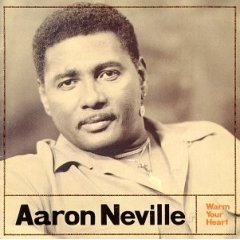 As for the mid-bass on down, I think the designers of MI880 made the right creative decision. The 80 watts of power are directed to control the mid-bass for a great sense of timing and texture rather than allowing for too much bloom to color the sound. A woollier mid-bass would impress at first, but trust me, you would tire of it quickly. Listening to Aaron Neville sing “Louisiana” from Warm your Heart (A&M B00002GJK), the engineering of the bass is pushed far forward into the mix, just bordering on excess. Some amps loose the grip, spreading the already heavy mid-bass across too much of the sonic picture. True, the MI880 is a bit lean and lacks ultimate slam, but at least you can hear clearly what is going on through the bass on up into the lower mid range. This proved to be a real help with densely recorded orchestral music where there is a great deal of bass and cello energy. Again, you may sacrifice a bit of power, but the delineation and timbre is the payoff.
As for the mid-bass on down, I think the designers of MI880 made the right creative decision. The 80 watts of power are directed to control the mid-bass for a great sense of timing and texture rather than allowing for too much bloom to color the sound. A woollier mid-bass would impress at first, but trust me, you would tire of it quickly. Listening to Aaron Neville sing “Louisiana” from Warm your Heart (A&M B00002GJK), the engineering of the bass is pushed far forward into the mix, just bordering on excess. Some amps loose the grip, spreading the already heavy mid-bass across too much of the sonic picture. True, the MI880 is a bit lean and lacks ultimate slam, but at least you can hear clearly what is going on through the bass on up into the lower mid range. This proved to be a real help with densely recorded orchestral music where there is a great deal of bass and cello energy. Again, you may sacrifice a bit of power, but the delineation and timbre is the payoff.
Based on what I have described so far it would not be a surprise that the sound stage presented by the Melody was on the intimate side, with great placement and rendering of distance between images. This is fairly typical of lower powered tube amps compared to the high-powered solid-state breed. Brawny, current hungry, high damping factor spec’d amps, tend to expand the soundstage laterally, while the lower powered amps tend to narrow the stage a bit with a better sense of depth. Before you start pummeling me with rotten tomatoes, I know this is a sweeping generalization that could be dispelled in many circumstances. In the environment this amp would be used, i.e. smaller space/smaller scaled systems, the great sense of space and staging will shine.
Conclusion Part 1
There is one quality the MI880 possesses that I believe is the intangible that all great pieces of audio gear strive for regardless of price: the ability to communicate the humanity behind the notes. I think this is what surprised me the most about the MI880. I always had a below the surface connection to my favorite music. We try to break down the individual aspects of the sound in the hopes that by adding up the score we come up with a relative rating scale, be it four stars, 90 out of 100, thumbs up-thumbs down, or what have you. Unfortunately, the summing of the parts can be very misleading. I have auditioned countless pieces of gear that despite their strengths, lack the “it” factor that keeps me interested. My experience with the Melody MI880 was the exact opposite. Its limitations were apparent early on yet over the long haul, its strengths kept me engaged.
Conclusion Part 2
Clement Perry and I often discuss the virtue of keeping an open mind when exploring the world of audio gear. The system I have now as my reference is a result of just such a virtue. These components could not be further from the Melody MI880 in price, concept, function or technology. I am a better reviewer, at least I hope, for having given the MI880 a fair shake. For those on the path to building a system in the price range where products like the Melody MI880 make up the scenery, I strongly suggest giving it a try.

_____________________
Specifications:
Vacuum Tubes: KT88×4, 6SN7×4, 101Dx1
Power Output: 50W+50W, Class AB1
Frequency Response: 20Hz – 20KHz
Input Impedance: 250KΩ
Output Impedance: 4Ω, 8Ω
Input Sensitivity: 480mV
S/N: ≥90dB
T.H.D: 1%
AC Power: 117V±5%, 50Hz/60Hz
Dimensions (inch): 22(W)×23(D)×14(H)
Weight: 65 lbs
Price: $2,210.00 US
Features:
4 pairs of single ended RCA inputs
1 pair of balanced XLR inputs
4 and 8 Ohm WBT-style speaker binding posts
Audiophile grade components
Balanced design
Hand solder with point to point wiring
High gloss piano like lacquer finish
Elegant styling
Contact
Melody Hi Fi, LLC
3846 W. 230th St.
Torrance, CA 90505
Tel: 310-375-8938 (Mingus)
901-881-7411 (James)
E-mail:
melodyhifi@yahoo.com
info@melodyhifi.com
Website: www.Melodyhifi.com
![]()
Don’t forget to bookmark us! (CTRL-SHFT-D)
Stereo Times Masthead
Publisher/Founder
Clement Perry
Editor
Dave Thomas
Senior Editors
Frank Alles, Mike Girardi, Russell Lichter, Terry London, Moreno Mitchell, Paul Szabady, Bill Wells, Mike Wright, and Stephen Yan,
Current Contributors
David Abramson, Tim Barrall, Dave Allison, Ron Cook, Lewis Dardick, John Hoffman, Dan Secula, Don Shaulis, Greg Simmons, Eric Teh, Greg Voth, Richard Willie, Ed Van Winkle, Rob Dockery, Richard Doron, and Daveed Turek
Site Management Clement Perry
Ad Designer: Martin Perry


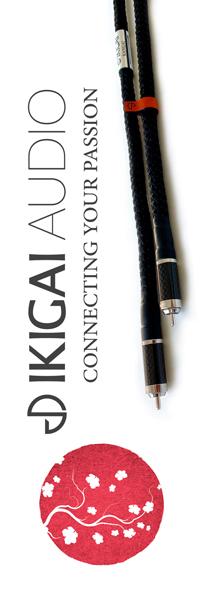
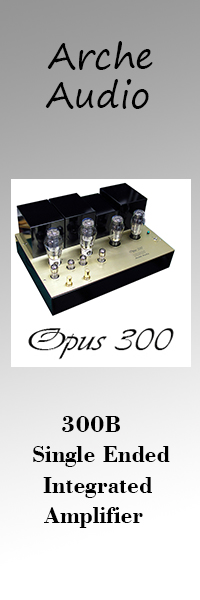
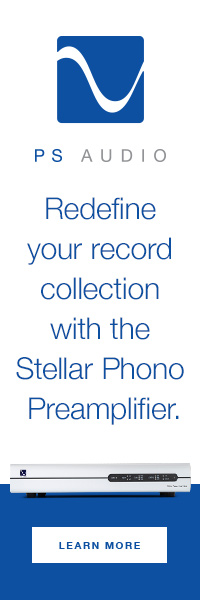
Be the first to comment on: The Melody MI880 integrated tube amplifier